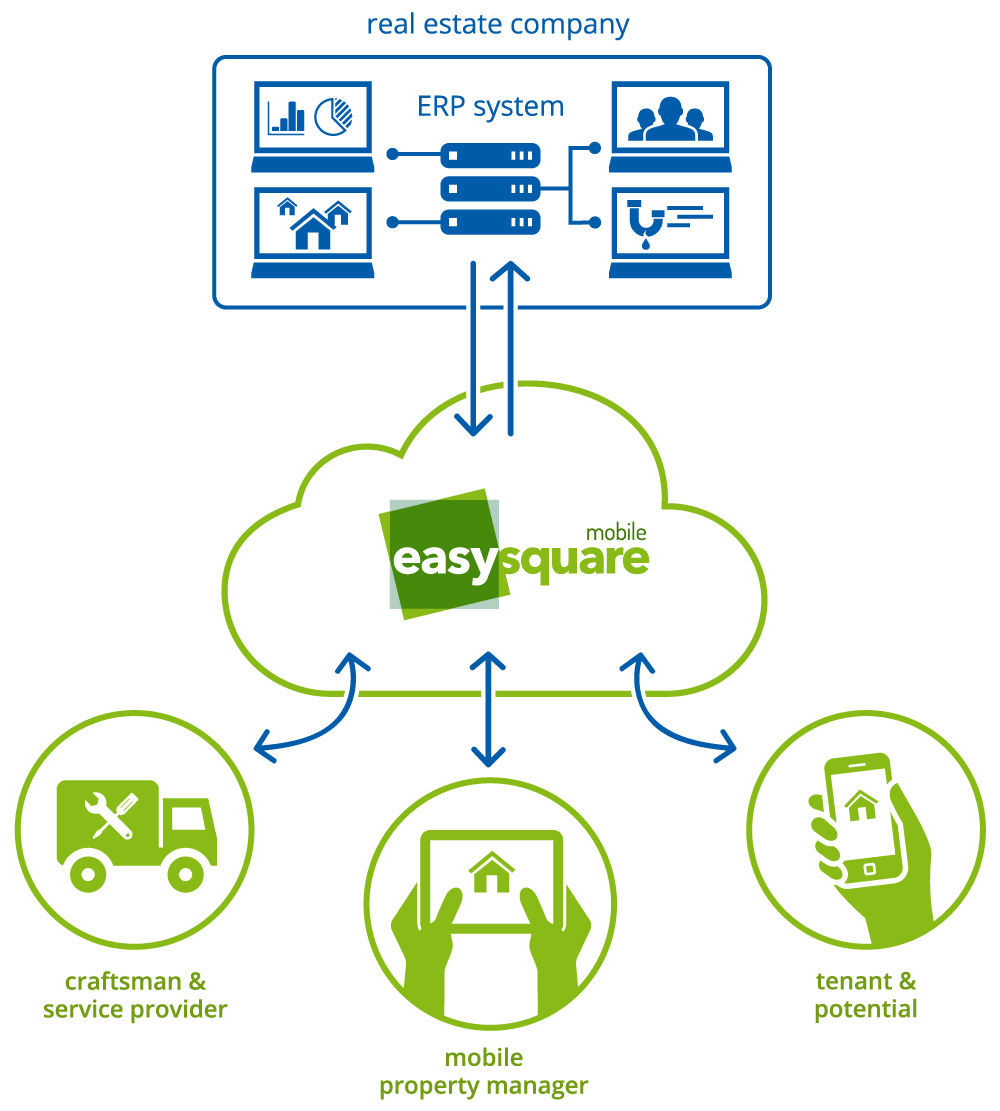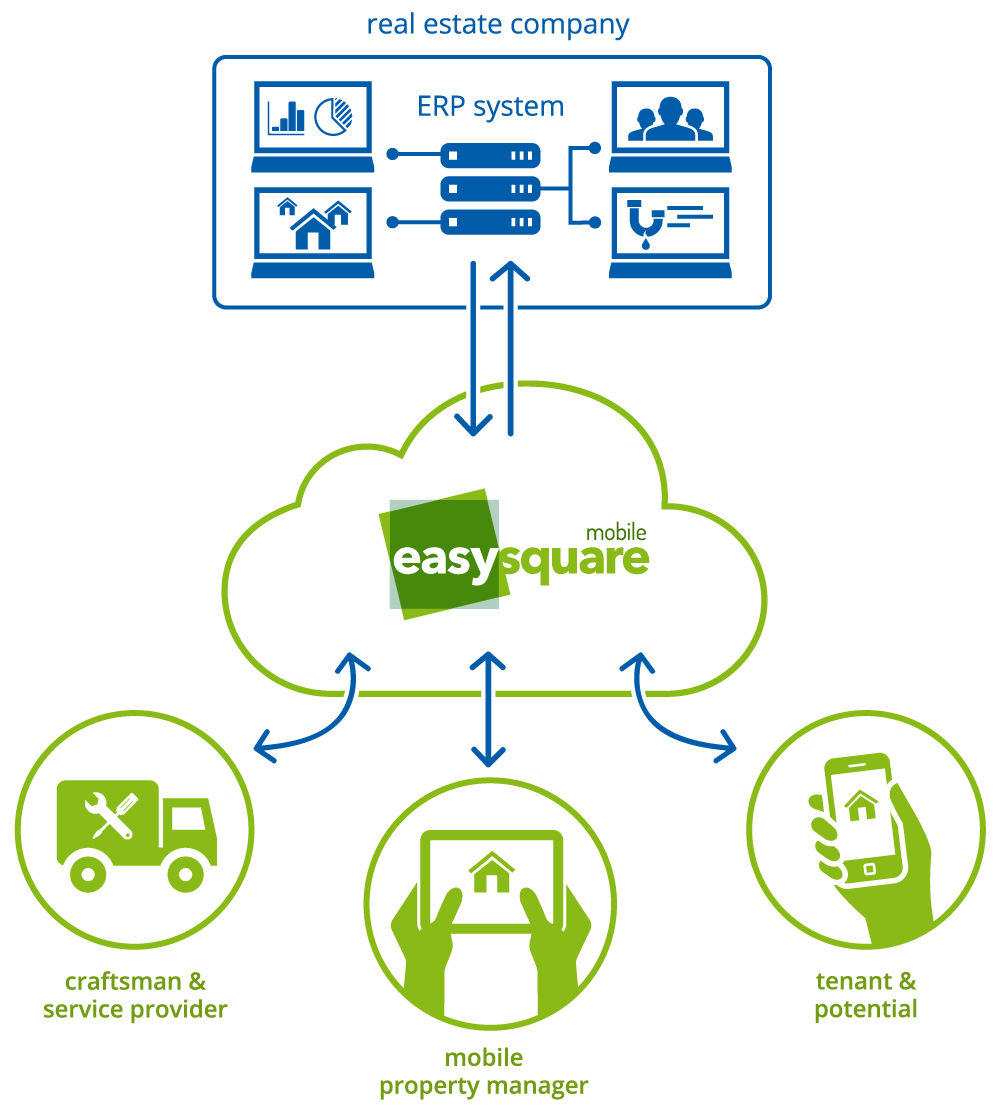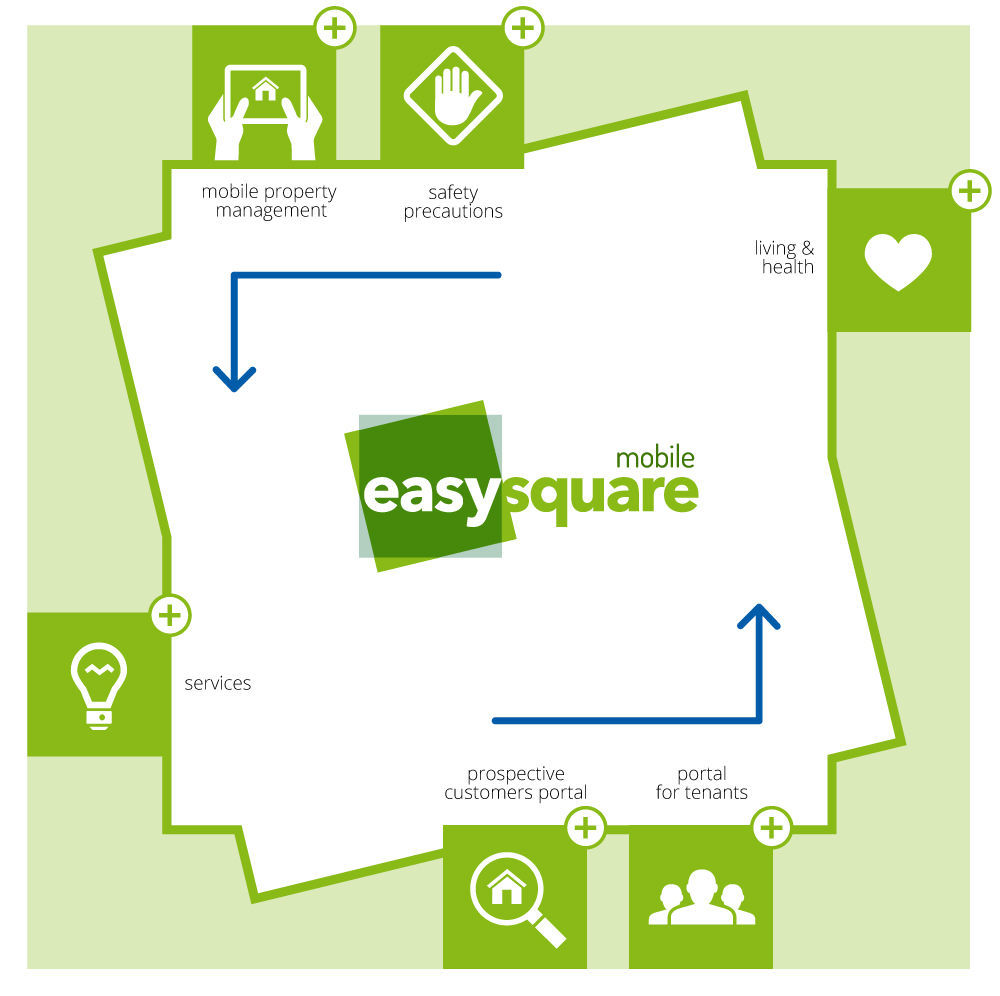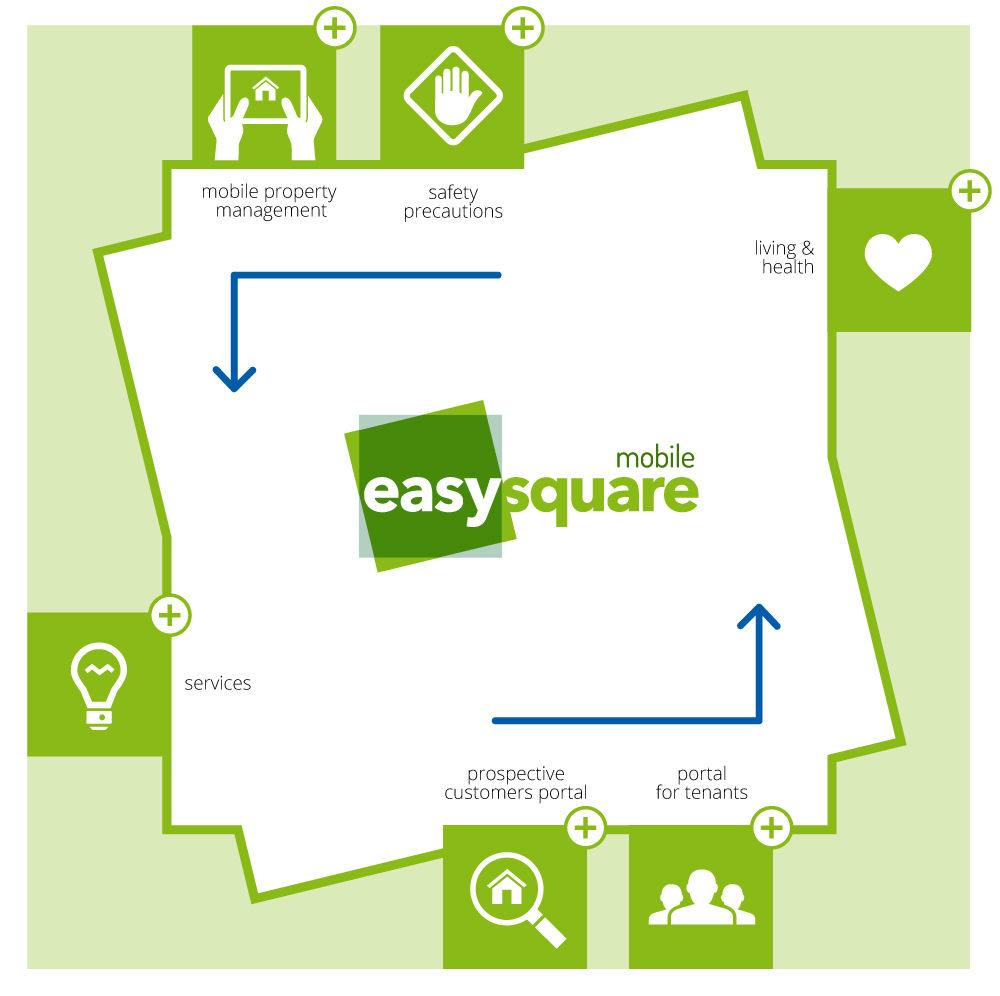Property management is cloud capable

Whether and in which form cloud computing can be beneficial is largely dependent on the company’s business model. Companies that develop a cloud strategy tailored to their own needs at an early stage will save themselves unnecessary costs and lost time resulting from unsuitable cloud solutions that subsequently have to be adjusted to the company’s actual requirements in a time-consuming process.
Public, private or hybrid cloud?
Generally, two different cloud models are available. In the public cloud, companies use services from external providers that could theoretically be located anywhere. For the companies in question, this solution requires the least amount of outlay for procuring their own cloud infrastructure, as they do not need their own data centre. However, this results in strong dependence on external partners. The contrasting model to this is the private cloud, in which the companies in question run all IT services including infrastructures and visualisation technologies in their own data centre. The technical effort required for this is significantly greater – but so is the independence. However, in practice, many companies do not opt strictly for one of the two solutions, but prefer hybrid clouds that combine elements of the two models. Precisely because the boundaries between the two solutions are often fluid in practice, companies should carefully plan their requirements and technical implementation, and pay particular attention to the critical processes for their own business activities. The main argument for cloud computing is that the efficiency of internal company processes can be increased. Here, the most important aspect is the option to access company data at any time and from any location. This aspect, in particular, is the key advantage for real estate companies when it comes to cloud computing. This applies to companies that manage large real estate inventories themselves as well as to service providers connected to the real estate industry that support customers and their properties at different locations. A cloud solution can considerably reduce the time spent in this regard and the need for internal communication.
The cloud in property management
A typical area in which real estate companies can increase their performance using cloud computing is property management – regardless of whether this relates to the corresponding internal functions of a large real estate fund or housing company or a company that provides relevant services solely as a service provider for third parties. Companies that have to communicate with a large quantity of customers at different locations can also often realise this more cost effectively with cloud solutions than with a conventional IT infrastructure. The widespread distribution of mobile terminal devices like smartphones and tablets provides additional potential that can be tapped using appropriate cloud-based software solutions without the need to procure additional IT structures. Instead of a one-off large investment, this incurs only easily calculable monthly costs for the software leased from the cloud. This method is particularly convenient and user friendly if a large number of different services are combined on a platform so that all those involved can select what is interesting and necessary for them, as on a marketplace. The range of options extends from mobile property and customer support – for example in connection with inspections, defect reporting or residential property inspections – to portals for interested parties and tenants and topics such as winter service monitoring, coordination of tradesmen or monitoring of building progress.


Figure 1: An intelligent networking
solution for mobile processes connects all those involved in professional
real-estate management on a shared platform, and thus structures communication
easily and efficiently.
|
Easily scalable
The scalability of the services used in the cloud is another key argument for real estate companies. Cloud-based solutions can “grow along with” the real estate portfolio and the supported customer base without the need for extensive investments in new IT systems and software solutions once certain capacity limits are exceeded. Another attractive factor for many real estate companies is the fact that their own personnel resources for IT can be kept within manageable limits with cloud computing and yet corresponding state-of-the-art expertise remains available. This allows the companies to focus more strongly on their core business.


Figure 2: Just like in a shop-in-shop
system, the digital market place forms the basis for all individual services
and applications.
|
Critical success factors
The dependence on the cloud provider in question and its expertise is a crucial factor. Also of importance are the provider’s economic viability as well as the reliability and capacity of the available Internet connections. Further considerations include any necessary adjustments to the company’s own process to match the software used in the cloud. However, professional support reliably resolves such compatibility requirements. Security risks relating to data protection are relevant in particular if data is saved abroad. Risks of failure due to hardware problems, power outages and the like can be considerably reduced through redundancy and an uninterruptible power supply.
Flexibility and easier growth
Viewed holistically, cloud computing provides interesting benefits in particular for real estate companies that value a flexible, expandable IT infrastructure. They either rely on decentralised access options in their day-to-day business or plan to grow considerably. Provided the “move to the cloud” is based on a stable cloud strategy that is adapted to the company’s requirements and is implemented systematically, companies can tap efficiency and growth potential that would be almost impossible to achieve without the cloud.
Author:

Jens Kramer
CEO
PROMOS consult
Other articles by this author:
- Article "Property management is cloud capable"
- Article "The PC is becoming obsolete"
- Article "Making short work of minor repairs"
- Article "The digital transformation – an opportunity for the housing industry"
- Article "Fast, mobile, user friendly – digital solutions for the residential property business"
- Article "Artificial Intelligence – Why you should pay special attention to this new technology"

